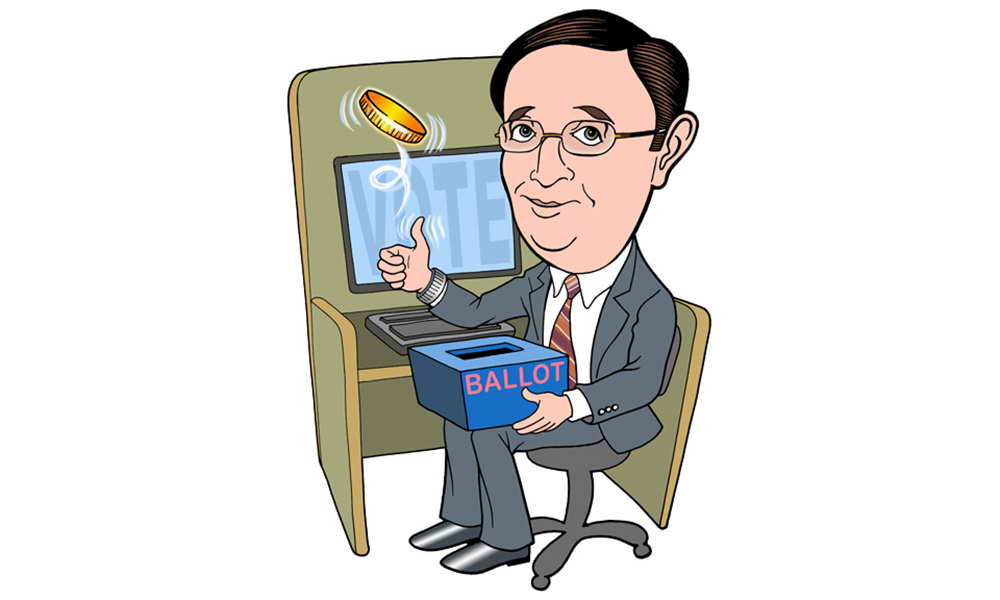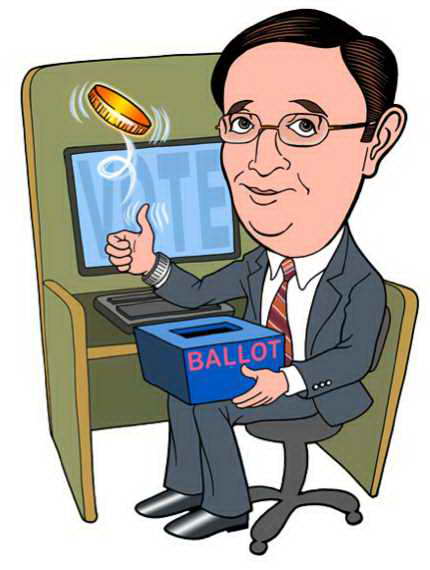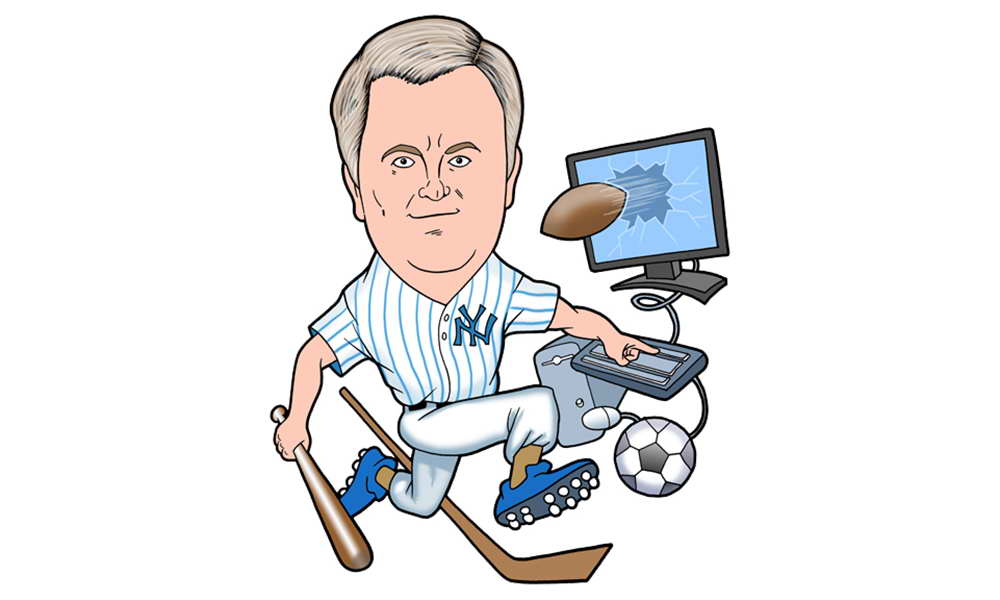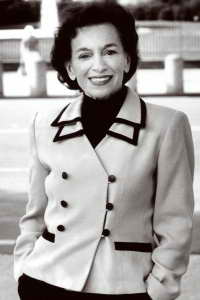By John Sparks
With time counting down to the Iowa caucus and New Hampshire primary, are there more twists and turns ahead?
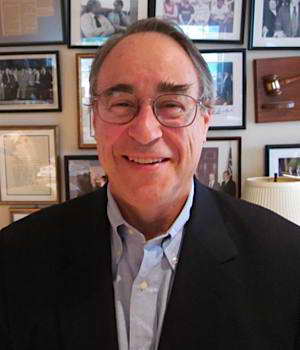
Carl Leubsdorf
The Marist Poll’s John Sparks visits with Marist Poll Analyst and syndicated political columnist Carl Leubsdorf who writes a weekly column for The Dallas Morning News about the latest trends in the 2012 campaign for the GOP presidential nomination.
John Sparks
Carl, it’s less than a month until the Iowa caucuses, and according to the latest Marist Poll there have been some changes. But before we talk about those changes, I’ve got to ask you: Which is more important to a candidate, Iowa or New Hampshire?
Carl Leubsdorf
Well, it depends which candidate, I think, because for certain of the candidates for the group of — that we call the conservatives in this race, they’re all conservative, but basically who have been jockeying all year for position, and I’m talking about Speaker Gingrich, Governor Perry, Representative Bachman, in particular Herman Cain because he’s not there anymore, and to a lesser degree Ron Paul, Iowa is more important because it’s going to establish the pecking order among those people. In effect, we’ve had sort of two primaries going on, the — on one side, the establishment side, we’ve had Romney and the two former governors, Mitt Romney and Jon Huntsman, and on the other side, we’ve had the other candidates. So, among the other candidates, they’re jockeying for position, and Iowa is extremely important because of the nature of the electorate, quite conservative. It’s a caucus system which encourages activists, so… But for Governor Romney, while there’s some importance in Iowa, the key thing for him is to win New Hampshire and win it decisively so that the media does not write: Well he won, but he didn’t meet expectations because he needs to use New Hampshire where he has a summer home and where he spends a lot of time as a board to sort of propel himself into the primaries in South Carolina and Florida.
John Sparks
Well, let’s talk about Iowa first since it comes first. The caucuses are January 3rd, and the latest Marist Poll has Newt Gingrich on top with 26%, followed by Mitt Romney at 18% and Ron Paul at 17%. Now Marist Poll Director Lee Miringoff says, “Hold on tight for further twists and turns.” Carl, do you think we could see more changes between now and January the 3rd?
Carl Leubsdorf
Well, historically there have been a lot of changes in the last six weeks, and one thing I’ve been advising everyone that I’ve talked to and probably have discussed in these interviews previously, is that Iowa tends to firm up in the last month to six weeks. There are a lot of changes near the end, and the way it stands in August or in June probably isn’t going to be the way it’s going to end up, and that, in fact, has happened with the emergence of Speaker Gingrich as the leader there. It’s going to be interesting. I don’t know whether he can maintain it. It’s a shorter period he has to maintain it than some of the others who’ve come up. There’s the question: If he doesn’t maintain it, who would get his votes since just about everyone of his rivals among that group has been up there earlier.
Ron Paul is an interesting and sort of a separate phenomenon. He has a very fervent following, a lot of it young people. He’s got a solid vote, which is I would rate at 10-to-12%. But the latest poll is, not only the Marist Poll but the two others that were taken, show his numbers coming up in Iowa, so he’s clearly a contender for first place.
And the third player near the top of the poll, Governor Romney, has not spent that much time in Iowa. He spent a lot of time four years ago. He definitely has a following. We have to remember that while the Iowa Republican Party and likely caucus attendees are pretty conservative, maybe a quarter to a third of them are more moderate and more establishment, and Romney will do very well there whether he spends a lot of time in Iowa or not. I found interesting in these last polls, and we’ll find out later if it was meaningful, Romney’s numbers appear to have come down in Iowa for no particular reason, and this is the phenomenon we saw four years ago that the more he campaigned in a place, the less well he did, and people forget that at one point he was the leader in both Iowa and New Hampshire four years ago, and he ended up winning neither. So, whether we’re seeing that phenomenon in the fact that he’s dropped from the mid 20s into the upper teens (inaudible) polling caucuses is very difficult and finding likely attendees.
John Sparks
You know, Carl, second choices might tell us something because Herman Cain was still in the race when the Marist Poll was taken, and 28% of Cain’s supporters said that Gingrich was their second choice, followed by Paul and Romney with each 19%.
Carl Leubsdorf
Well, I think the general assumption has been that Cain’s vote is… more of it will go to Gingrich than to anyone else. They’re both from Georgia. They both had some affinity on the issues. They’re quite… There are a few suggestions that Cain will in fact endorse Gingrich fairly soon, so that’s not surprising. In a way, the thing that Romney most fears is the consolidation of the conservative vote behind one candidate early in the game. Romney was counting on the fact that the conservative vote would stay very divided, and, in fact, in a very divided conservative vote, Romney with say 25% might win the Iowa caucuses. But if the vote begins to consolidate in Iowa behind one person, then, at the moment that appears to be Gingrich, that’s a problem for a candidate like Romney who has shown great difficulty in getting above about a quarter of the vote everywhere except in New Hampshire.
John Sparks
The Marist Poll showed that among caucus goers who consider themselves Tea Party or conservative and Evangelical Christians, Gingrich gets 35% compared to only 11% for Romney.
Carl Leubsdorf
Well, that’s not Romney’s electorate, but the… I didn’t notice what percentage in your poll was people who consider themselves conservatives as opposed to moderate or however it’s described in the poll, and maybe it wasn’t asked. But I said, the assumption has been about two-thirds of the caucus electorate or maybe a little more would be Tea Party people, Right-To-Lifers, Christian conservatives, the various factions that make up the right side of the Republican Party, and that is not a group that where Romney is going to do very well.
John Sparks
You know, I think it’s always interesting, polling people and asking them why they vote like they do, and in Iowa, three in ten that are likely to be caucus goers tell us they want a candidate who is closest to them on issues – 29% say the candidate who shares their values is a key, and that’s flip-flopped a month ago. Any significance to this that now there’s…
Carl Leubsdorf
Well, I think it seems to be fewer of them are saying that the first choice would be someone they think that can win, and actually we’ve seen in the some of the polls lately, more people think that Gingrich can win than think Romney can win. Romney has not… Romney has run this very buttoned up campaign where he tries to avoid the other candidates, where he behaves like the front-runner, where he straddles the issues and tries to say as little as possible, and when you combine that with his bland personality and the fact that he doesn’t have much of a persona, I think it’s hurt him, and I think it’s, you know, Gingrich has emerged as a more dynamic candidate, as a candidate who could get in Obama’s face. I mean, the thing that Republicans want most is to beat President Obama. They want a candidate who will stick it to him in the debates and who will be outspoken, and I think they see Romney is not able to do that. So, in the other candidates, and I say Gingrich is the favorite of the moment, they see ones who both agree with them and can be aggressive against Obama.
John Sparks
It’s interesting that you mention the general election. When Iowans turn to the general election, Obama ties Ron Paul, but he defeats Gingrich in Iowa 47% to 37% and he defeats Romney 46% to 39%.
Carl Leubsdorf
That’s interesting. That’s especially interesting because Iowans have been subjected to a steady barrage of anti-Obama rhetoric. The president’s been there a couple of times, but since there is no Democratic primary, most of the — most of what’s coming out in politics is Republicans, and most of what they’re doing is attacking Obama, and for Obama’s numbers to hold up that well is probably a good sign for him from the Fall that I think it’s the calculation of the Obama campaign at this point that in a relatively close election where they have a reasonable chance to win, Iowa would be one of those states that the president would be able to carry. It’s considered one of the states definitely in play. It was carried by, I guess, by Bush in ’04 and by Obama in ’08, but that is not a great sign for the Republicans, and there’s some sense, and there’s a new Pew Poll on this too, that what’s going on in the Republican Party has actually hurt the party somewhat. Whether that will have a long-term affect, we don’t know.
John Sparks
Carl, organization has always been an important factor in the campaign. Is it still an important factor, especially in Iowa?
Carl Leubsdorf
Well, it’s important in Iowa because in order to vote, you have to go to a caucus in your precinct, and there are 2,400 precincts in Iowa, and the weather in January when this takes place is often not very good, and traditionally, the way you won in Iowa is you set up a structure in every county, you said the 99 counties and then a lot of the towns, to get people out to the caucuses. I think that’s going to be less of a factor. If it is a big factor, Speaker Gingrich will be in big trouble because he doesn’t have much of an organization there. Ron Paul’s got a perfect organization out there supposedly, and Mitt Romney has one because he had one four years ago. But, this campaign has really been fought out in the televised debates. That’s what’s really driven the race and have gotten the most attention, and the flubs of the various candidates like Governor Perry’s problem, naming the third department he would get rid of or outside issues like the problem Mr. Cain had with various women have really driven the narrative of this campaign, and television advertising’s about to start really full scale in Iowa, but I don’t think that’s the major factor either. I would guess organization will be less important. But if we wake up on caucus morning and Newt Gingrich is in fourth place, then we’ll know organization was more important than we think it is, but I think it’s been reduced a lot. Another factor on the organization side is there’s a difference between the Democratic caucuses and the Republican caucuses in Iowa. In the Democratic caucuses, they have a system where if you get — if someone has less than 15%, their support doesn’t count. The caucuses are precinct caucuses. They elect delegates to the county conventions, which eventually this will get to a state convention. In the Democrats, they all line up for the different candidates in different corners of the room. Anyone who’s got under 15%, his candidate is out, and those people can go join one of the other groups, and you really need organization to do that. The Republicans have a straight vote. It’s like a straw poll. When they arrive at the caucus, they vote for one of the candidates, and that’s how the delegates are allocated to the county then. That’s much easier. It’s more like a regular election than a primary than like a caucus, and if they don’t want to stay for the discussion of the issues and all that, they can go back home as soon as they vote. The Democrats, you got to stay awhile. So, it’s another factor that reduces the importance of organization in this election.
John Sparks
Let’s go from Iowa to New Hampshire. The New Hampshire primary comes a week after the Iowa caucuses, and the latest Marist Poll shows that in New Hampshire, Mitt Romney is in the lead 39% to 23% over Gingrich, but that lead has been cut in half since last month’s Marist Poll in New Hampshire. Any significance there?
Carl Leubsdorf
Yeah, I think a couple of interesting things there. One, Romney has steadily been… I think most of the fact that it’s been cut in half is probably because Gingrich has gained and less that Romney has been consistently in most polls in the neighborhood of 40%. And the fact is, if he gets 40% in the primaries, he’s almost certainly going to win. One thing… the biggest caution on New Hampshire is that the day after the Iowa caucuses, all the numbers you’ve seen so far in New Hampshire will be worthless because the numbers will change according to what happens in Iowa. It happens every year, you see a real change, and the fact that the primaries are only — and the caucus in Iowa and the primary is in New Hampshire are only week apart means that there can be a big affect of what happens in Iowa. What that means is that the winner in Iowa will get a boost in New Hampshire. Now, if it’s Gingrich, and he’s already surpassed 20%, that could put him up near the 30% level. And, unless Romney comes out of Iowa with a feeling well he did okay considering he didn’t campaign much there, his numbers might come down a little bit. Now if Romney’s numbers come down a little bit, that votes probably not going to go to Gingrich, it’s probably going to go to Jon Huntsman who is the former Governor of Utah, has concentrated in New Hampshire, and although his record is equally as conservative as the other candidates, his more moderate manner and the fact that he’s not spent all of his time bashing President Obama gives him an appeal to the independents. Remember in New Hampshire, independents can vote in the primary, and with no Democratic primary, we expect a lot of independents to vote there. Not all independents are moderate to liberal to be sure, but I think there are more of those than arch conservatives. So, what you’ll see in… Now if Romney comes in to say a strong second in Iowa, his numbers will hold up very well, but if comes in a weak third, he may suffer some erosion there, and certainly the winner in Iowa will get a bump up, so you’ll see a change there by the Thursday or Friday of that week, and it’ll determine whether anyone actually has a chance of beating Romney. The great fear I think from the Romney point of view is that he survives to win, but he wins so narrowly that it does not give him a boost for the later primaries. As I said before, New Hampshire is extremely important to Romney. He was governor of a neighboring state. He has a summer home there. He’s spent a lot of time there. He really needs to have a strong victory there, or he’s going to have real problems when the race moves south.
John Sparks
Interesting that you mention the independent voters in New Hampshire. Romney leads Gingrich by 12 points among Republicans in New Hampshire, but when it comes to independents, his lead opens up to 21 points over Gingrich.
Carl Leubsdorf
Well that’s exactly right because the two candidates who the independents are most likely to vote for or like more than will vote for are Romney, considered the moderate in this race. Remember, he’s taken all these conservative positions, but a lot of people don’t believe he really believes them, including a lot of conservatives, so he will get a lot of that independent vote, but if he falls or has seen trouble, it’ll go to Huntsman I think.
John Sparks
According to Marist, the New Hampshire voters are firmly committed to their candidate – 49% say they’re strongly committed while 31% report they’re somewhat committed, whatever that means, but that may tell us something…
Carl Leubsdorf
That’s more than in Iowa is and… that’s more than in Iowa that it’s… they’re less committed, I think.
John Sparks
Correct, but I wondering if this might tell us something about what the general election might be like in New Hampshire. There’s something that’s interesting about New Hampshire. Marist has President Obama losing to Romney in New Hampshire by only three points, 46/43, but they have the president defeating Ron Paul by only two points, and they have the president defeating Gingrich by ten points and yet…
Carl Leubsdorf
I think…
John Sparks
I was going to say – and yet a majority of New Hampshire voters, 52%, say they don’t approve of Obama’s performance.
Carl Leubsdorf
Well, I think if you compare the two states, Obama has much less chance of carrying New Hampshire than Iowa, especially if his opponent is Romney who is — we said is well known there and has ties there. He is not popular in New Hampshire. All the polls have shown that consistently. He’ll have a difficult time carrying New Hampshire. I would bet if you could get an Obama person to say what was the map that they would have assuming that they barely got over the 270 mark needed for an electoral vote, what’s on that map? I would guess that Iowa would be on it and New Hampshire would not.
John Sparks
Probably so.
Carl Leubsdorf
One of the interesting things in New Hampshire that I should mention is the influence of the Union Leader newspaper. For years, the Union Leader, which is the only statewide paper in New Hampshire, has played an outsized role in New Hampshire Republican politics. It’s… the person that has supported hasn’t always won, but a recent study showed that, I think by Nate Silver of the New York Times, was that the endorsement of the Union Leader is definitely worth a number of points. That candidates who were endorsed by the Union Leader gained strength afterwards. A couple weeks ago they endorsed Speaker Gingrich as their candidate. That’s undoubtedly one of the factors in his rise to 23% in the Marist Poll, and it will be a factor because when the Union Leader endorses someone, they don’t just write one editorial and then go back to their knitting. There will be more front page editorials in the Union Leader, and not only will they spend some time supporting Gingrich, but they will be beating up on the candidates they don’t want, and number one on that list is Mitt Romney. So, that is going to part of the dynamic here. It will help whoever emerges from Iowa as the leader of that conservative group, and, at the moment, it looks like it will be Speaker Gingrich.
John Sparks
Carl, I’ve got to ask you with everything that’s going on in my business, people are not reading newspapers as much, so does the Union Leader still have the influence it once had?
Carl Leubsdorf
Well, you know it’s interesting in New Hampshire. It’s the closest thing to a statewide newspaper. Television, there’s only really one major television station in New Hampshire, WMUR in Manchester. Now, of course, they get news on cable, and they get a lot of Boston TV in New Hampshire, but New Hampshire outlets — New Hampshire has an interesting group of newspapers. I know a fair amount about it because my son, Ben, works for the Concord Monitor. There’s a string of local regional papers in New Hampshire, most of them dailies but some weeklies, and which have a fair amount of readership in their local area. The Union Leader has more influence. Manchester is the biggest city in New Hampshire. It has a bigger readership, and also what the Union Leader does gets trumpeted by TV. It’s always a big thing. What some of the smaller papers do doesn’t get as much as publicity. So, I think it’s less than it once was, but all signs are it does have influence and especially on the Republican side.
John Sparks
Carl, it’s always interesting to talk presidential politics with you. We’re getting to that time when the rubber meets the road, and I look forward to visiting with you again real soon.
 There’s evidence from other questions in this survey that this may, in fact, be the case. 26% currently think the state’s economy is on the upswing, double the proportion who shared this view in November. 30% think their family finances are improving while only 15% think their money matters are getting worse.
There’s evidence from other questions in this survey that this may, in fact, be the case. 26% currently think the state’s economy is on the upswing, double the proportion who shared this view in November. 30% think their family finances are improving while only 15% think their money matters are getting worse.




